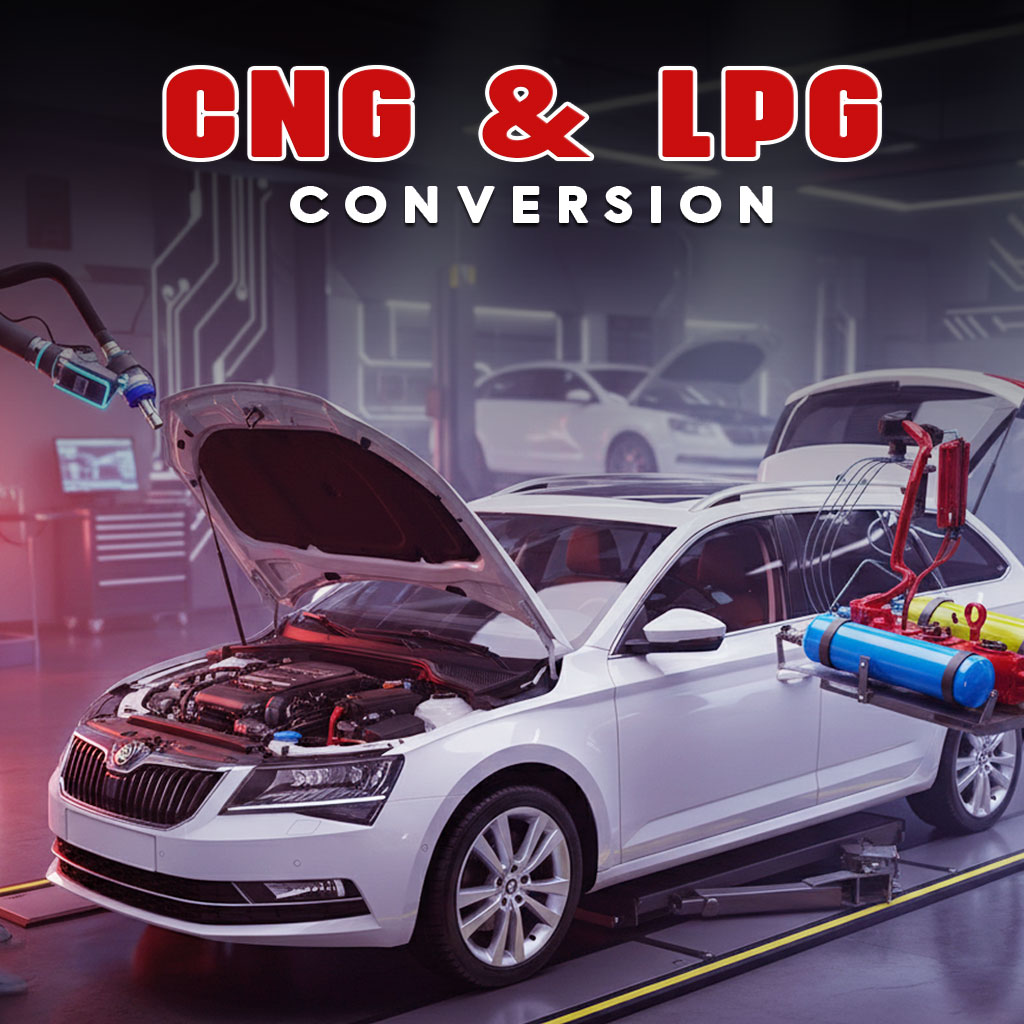CNG & LPG Conversion Service in Dhaka
CNG & LPG Conversion Service in Dhaka | Safe & Reliable Fuel Conversion
With rising fuel prices and increasing environmental awareness, many vehicle owners are choosing CNG (Compressed Natural Gas) and LPG (Liquefied Petroleum Gas) as alternative fuel options. At multibrand WORKSHOP ltd, we provide professional CNG and LPG conversion services designed to ensure safety, efficiency, and long-term performance.
Our certified technicians use quality components and follow strict safety standards to deliver reliable fuel conversion solutions for your vehicle.
Understanding CNG & LPG Fuel Systems
CNG (Compressed Natural Gas)
CNG is a clean-burning alternative fuel produced by compressing natural gas to less than 1% of its volume at standard atmospheric pressure. It is widely known for its lower emissions and cost efficiency.
LPG (Liquefied Petroleum Gas)
LPG, also known as autogas or propane, is a flammable hydrocarbon gas stored in liquid form under pressure. It is easy to transport and offers a smooth driving experience with reduced emissions.
Benefits of CNG & LPG Conversion
Cost-Effective Fuel Solution
CNG and LPG are generally cheaper than petrol or diesel, helping reduce long-term fuel expenses.
Environment-Friendly
Both fuels produce fewer harmful emissions, contributing to cleaner air and lower greenhouse gas emissions.
Improved Engine Longevity
Reduced carbon buildup leads to less engine wear and longer engine life.
Increasing Fuel Availability
CNG and LPG refueling stations are expanding, making alternative fuel more accessible for drivers.
Our CNG & LPG Conversion Process
Vehicle Safety Assessment
Each vehicle is thoroughly inspected to ensure it is suitable and safe for CNG or LPG conversion.
Fuel System Installation
Installation of certified CNG or LPG tanks, pipelines, valves, and supporting components.
Engine & ECU Adjustment
Fuel injectors and engine control systems are calibrated or upgraded to support the new fuel system.
Testing & Certification
Comprehensive testing is performed to ensure safe operation, leak prevention, and optimal performance.
Maintenance & Safety Considerations
Regular inspections and periodic maintenance are essential to ensure safe and efficient operation of CNG and LPG systems.
All conversions should be performed by trained and certified professionals to minimize safety risks and ensure compliance with standards.
Why Choose multibrand WORKSHOP ltd. for CNG & LPG Conversion?
Certified and experienced technicians
High-quality and approved conversion kits
Strict safety and testing procedures
Reliable after-conversion support
Suitable for multiple vehicle types
Certified and experienced technicians
High-quality and approved conversion kits
Strict safety and testing procedures
Reliable after-conversion support
Suitable for multiple vehicle types
Contact Us for CNG & LPG Conversion in Dhaka
Phone: +880 9609-224444, +880 1701-224444
Website: https://multibrandworkshop.com
Address: 417-418/A, Tejgaon I/A, Dhaka-1208
Google Map: https://goo.gl/maps/nECUeBFUHkiYhGZF7
